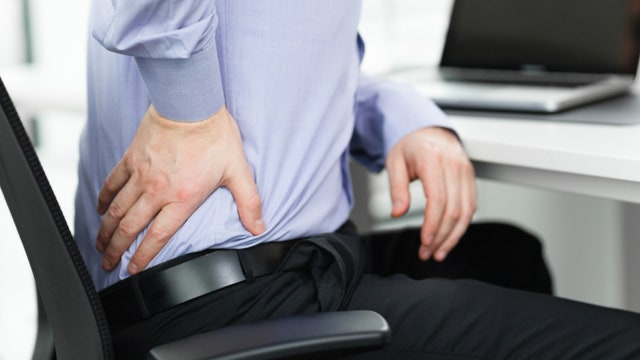Knocking out pain without drugs
All too often we pop a pill to get relief from chronic pain. That will work but it can also lead to addiction in the long run. Dr. Manny chats with Dr. Mel Pohl, author of “The Pain Antidote: The Proven Plan to Help You stop Suffering From Chronic Pain, Avoid Addiction to Painkillers and Reclaim Your Life” about other ways to manage pain
Opioid addiction has reached epidemic proportions in the United States. The U.S. has 4 percent of the world’s population and consumes 80 percent of the world’s opioids. These drugs are associated with more than 16,000 deaths per year— more than from motor vehicles accidents— and they kill more people than heroin and cocaine combined. Fifteen million Americans are taking opioids regularly and 2 million are misusing and/or are addicted to these powerful drugs.
Most people are taking these medications to kill pain, but no scientific evidence exists to show that long-term use— three months or longer— of opioids effectively reduces chronic pain. Furthermore, in many cases, opioids backfire and can cause more pain – the phenomenon known as opioid-induced hyperalgesia.
Accepting the fact that you have chronic pain and thus it will be with you for a long time— maybe for the rest of your life – offers a realistic approach that enables you to move forward and make changes that will allow you to live a rewarding existence with your pain. When we resist the pain, fighting against it, resenting it, even hating it, this negative energy actually aggravates the pain, resulting in tighter muscles, decreased circulation, and greater suffering. Emotions and thoughts drive the experience of chronic pain and make us miserable.
Working with thoughts and feelings will enable you to face the facts about your pain without being consumed by it. Changing unhealthy thoughts (like “My back is killing me” or “My head is going to explode”) will empower you to deal with reality— that is, facing the truth will set you free from these burdensome thoughts and feelings. I encourage my patients to journal and analyze their thoughts, but I also recommend that patients do “free writing,” or writing a page or two with no structure, and then destroy it without reading or showing it to anyone.
One of the key supportive activities anyone can do is a mindfulness practice such as meditation. There are many meditation techniques to choose from, but the key is to focus on breathing techniques, which function as powerful pain reducers.
Gentle, non-invasive interventions for chronic pain help to reduce pain, although at first they may increase the level of discomfort temporarily. For example, exercise and stretching are necessary physical interventions that loosen joints resulting in increased circulation, strength and function; but in the beginning they may create some aching and tenderness.
The connection between chronic pain and diet revolves around inflammation. Foods that increase inflammation and chronic pain include preservatives, sugar and grains, fried foods, artificial sweeteners and some vegetables like tomatoes, potatoes and eggplant. Foods that reduce inflammation include certain fruits like red grapes, cherries, blueberries and cranberries, walnuts, chia seeds, green vegetables including kale, watercress, spinach and broccoli, green tea, oily fish and cocoa. It is imperative to drink enough water. I strongly recommend avoiding toxins such as nicotine and alcohol.
Opioid painkillers are meant to take the pain away, but, unfortunately, in a majority of patients, the opioids end up causing more pain. These potent drugs work well for acute pain from injury or surgery but with protracted use, they lose their effectiveness and cause multiple troublesome side effects. With our patients, we safely discontinue these medications and invariably they have less pain when they are free from the drugs.
You may be wondering, “Where do I begin? How do I get started?” The Jump-Start Plan in “The Pain Antidote,” presents simple, straightforward strategies to help you create a daily regimen, tailored to your specific needs so you can incorporate them into your lifestyle.
Mel Pohl, MD, is a board-certified family physician who specializes in treating chronic pain and co-occurring addiction. He is the medical director of the Las Vegas Recovery Center and is the author, with Katherine Ketcham, of The Pain Antidote: The Proven Program to Help You Stop Suffering from Chronic Pain, Avoid Addiction to Painkillers-and Reclaim Your Life.
Visit LasVegasRecovery.com and ThePainAntidote.com for more.








































